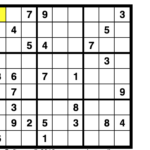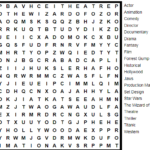 You know that exercise is good for your body, but do you know just how good it is for your brain, too? Regular aerobic exercise like running, biking, and swimming preserve existing brain cells while fostering the growth of new ones. In fact, a recent study published in the American Journal of Geriatric Psychiatry shows a link between long-term moderate physical activity and an increase in volume of the hippocampus — the area of the brain that deals with the formation of long-term memories. This area is the first to be damaged in Alzheimer’s disease.
You know that exercise is good for your body, but do you know just how good it is for your brain, too? Regular aerobic exercise like running, biking, and swimming preserve existing brain cells while fostering the growth of new ones. In fact, a recent study published in the American Journal of Geriatric Psychiatry shows a link between long-term moderate physical activity and an increase in volume of the hippocampus — the area of the brain that deals with the formation of long-term memories. This area is the first to be damaged in Alzheimer’s disease.
If you’re not a regular exerciser or you just haven’t done it in a while, here are some tips for getting started.
First, see your doctor.
He or she can assess your fitness level, let you know if it’s safe to start exercising, and tell you what types are best for you.
Track your progress.
Record your daily exercise in a journal so you can see how much you’ve done. Aim for 30 minutes of exercise five days a week. Use an activity tracker, such as a Fitbit™, or a pedometer to track your daily steps. Most people should have a goal of about 10,000 steps each day.
Balance your activity.
It’s important to incorporate aerobic activity (e.g., walking, biking, swimming), along with strength training (e.g., lifting weights, Pilates, or yoga) and balance exercises (e.g., tai chi, yoga) into your exercise regimen. Strength training, stretching and balance exercises are helpful in improving your mood and enhancing your concentration and decision-making skills, while keeping you strong, flexible, and able to move about well as you age. Regardless of what you do, be sure to start slow and warm up your muscles each time you exercise.
Give your body good fuel on which to run.
Be sure to drink plenty of water to stay hydrated. Eat meals and snacks that are high in fiber, such as oatmeal, fruits, and vegetables, beans, tofu, and fish.
Consider enrolling in a clinical trial
Physical exercise as a treatment intervention for people having thinking and memory problems is being studied by brain health researchers across the nation. Some of these studies offer free personalized exercise programs with a fitness trainer.
To learn more about exercising, including a suggested weekly plan and how to calculate your target heart rate, visit healthybrains.org/pillar-physical.
If you or a family member are interested in participating in a clinical trial, please contact us at [email protected].









